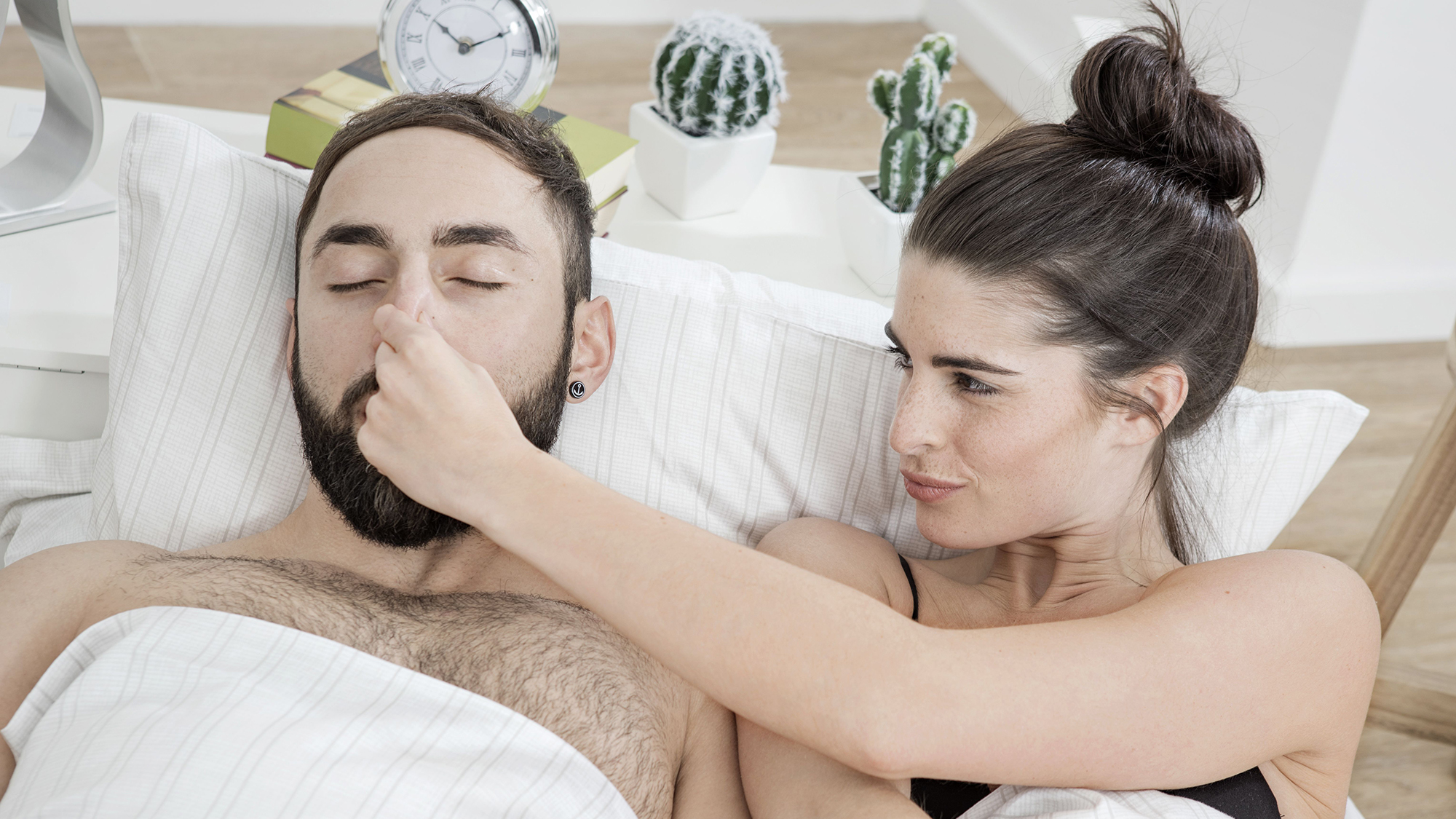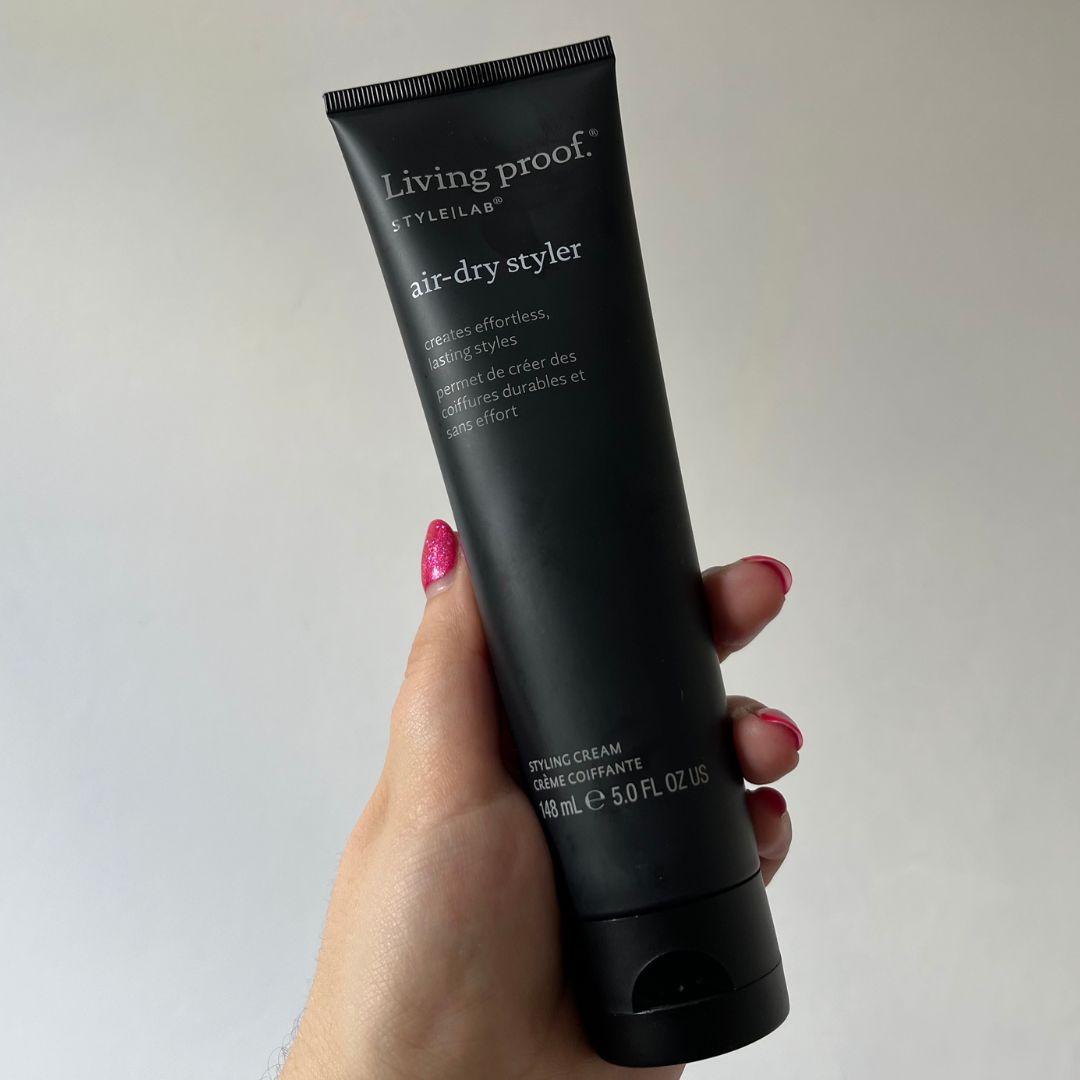Everything you need to know about snoring
Zzzzzz...


Zzzzzz...
According to Holland & Barrett's leading sleep expert, Dr Neil Stanley, 1/4 of us contribute our partner's snoring habits to disrupting our own sleep. To put the numbers out there, 74% of women said their partner snoring was their biggest disruptor compared to 49% of men.
What causes snoring?
Nuffield Health's physiologist Jade Wells says that despite how common it is, snoring is not 'normal.'
'Snoring can actually be a symptom of obstructive sleep apnea,' she tells us. 'It's a sleep disorder that affects the way you breathe when you’re sleeping. It occurs due to the collapse of the airway in the throat during sleep and causes loud snoring and periodic pauses in breathing. As a consequence, you spend more time in light sleep and less time in the deep, restorative sleep you need to be energetic, mentally sharp, and productive the next day.'
'The chronic sleep deprivation that comes with sleep apnea results in daytime sleepiness, slow reflexes and poor concentration. Sleep apnea can also lead to serious health problems over time, including diabetes, high blood pressure, heart disease, stroke, and weight gain.'
'It is important to take snoring seriously as a health problem and if you think you may be suffering from sleep apnoea or chronic snoring then it is advisable that you visit a doctor who can advise you on the best strategies for treatment.'
Snoring aids
There are, thankfully, things we all can do to diminish the risk of snoring:
Marie Claire Newsletter
Celebrity news, beauty, fashion advice, and fascinating features, delivered straight to your inbox!
Maintain a healthy weight.
'Snoring is closely associated with excess weight,' Jade tells us. 'Keeping your weight in check through regular exercise and healthy diet is one way to prevent, reduce and even eliminate snoring. Even a small amount of weight loss can open up your throat and improve sleep apnoea symptoms.'
Avoid alcohol
Avoiding alcohol, especially before bedtime, is ideal because alcohol relaxes the muscles in the throat and can interfere with your breathing (leading to snoring).
Don’t smoke
Smoking is believed to contribute to sleep apnea by increasing inflammation and fluid retention in your throat and upper airway, causing you to snore and have a disrupted sleep.
Maintain regular sleep hours
Sticking to a steady sleep schedule will help you relax and sleep better.
Snoring chin strap
Chin straps work by acting as a sling to keep your jaw shut while you sleep. This means that your tongue and throat tissues are less likely to block your airways.
Snoring strips
These nasal strips work by opening up your nasal passages to allow you to breathe better and snore less because your airways are unblocked.
Snoring ring
This less mainstream snoring aid is a metal ring that you wear on your little finger and that applies light pressure. It uses two acupressure points that have been known to stop snoring for the past 3,500 years.
Tongue muscle trainer
Sleep experts in Taiwan are testing a simple exercise that could put and end to your night time noises… and it’s all to do with your tongue.
They are testing a device which has a plastic, air-filled bulb at one end which snorers hold in their mouth while stretching their tongue into various positions.
The Tongue Muscle Trainer (as the device is being called) trains the tongue which can help with sleep apnoea, the most common cause of snoring where the tissue in the throat collapses during the night to block the airways.
Studies at the University of Quebec also support the idea that hour-long tongue strengthening exercises help snoring, with a reduction in sleeping problems by 48% of people tested.
Therefore, until we get the magical Tongue Muscle Trainer in our local shops, it might be a good idea to spend some time exercising by holding it in different positions around the mouth for a few minutes at a time to see if it makes any difference to your snoring habits.
-
 Jonathan Anderson is going to Dior Men
Jonathan Anderson is going to Dior MenHis debut collection will be this June
By Mischa Anouk Smith
-
 I'm a 2025 bride and these are the best affordable wedding dresses I've found
I'm a 2025 bride and these are the best affordable wedding dresses I've foundLess than £1,000 but still the height of chic
By Sofia Piza
-
 I haven't worn my hair completely natural for years, but this air-dry styling cream has made me love my waves again
I haven't worn my hair completely natural for years, but this air-dry styling cream has made me love my waves againI will never be without this
By Amelia Yeomans